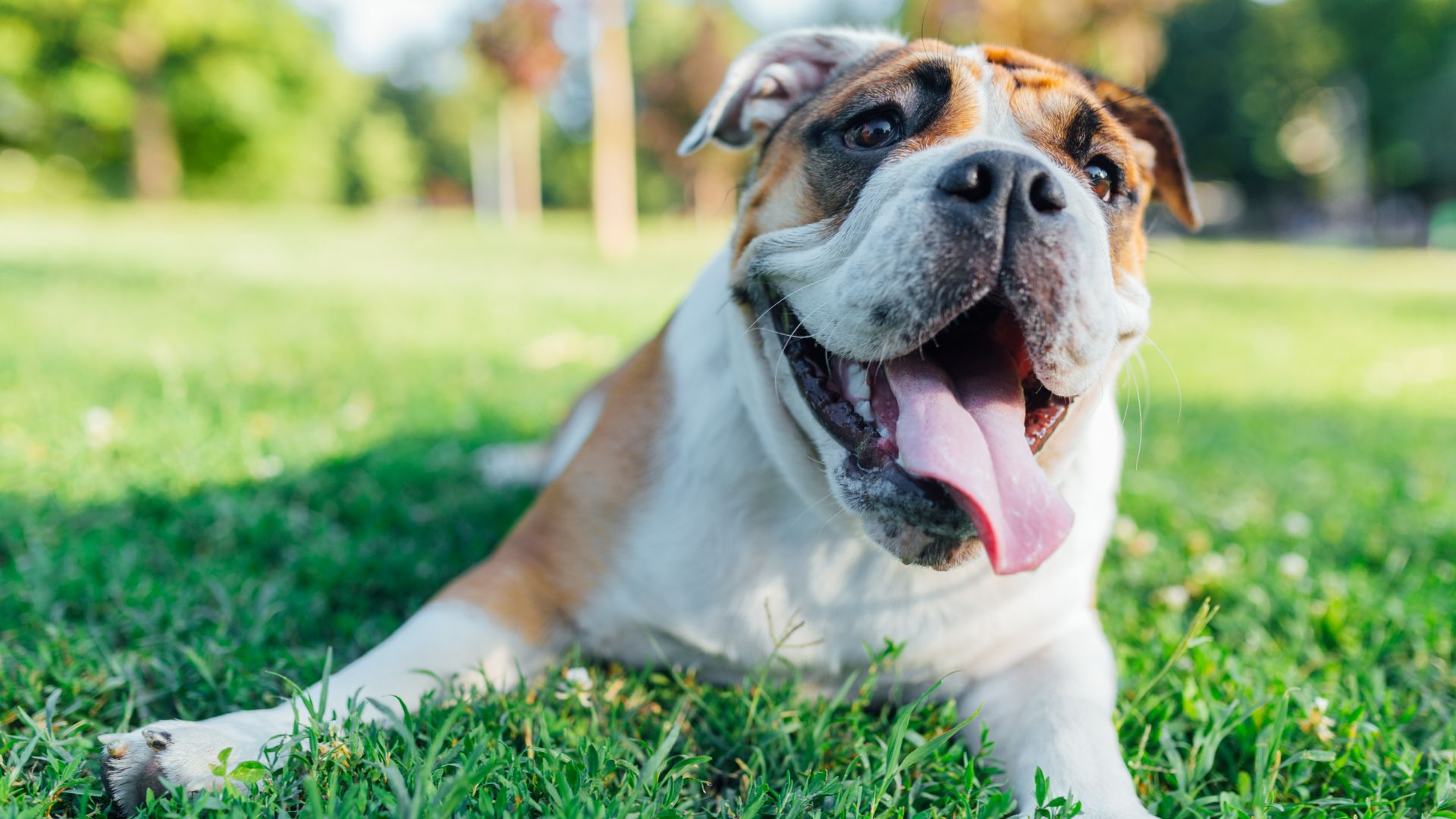
If you ever asked yourself, 'Why do dogs pant' you are not alone. This is something that many new pet parents may find themselves asking, and because we also like knowing everything there is to know about pets, we asked a vet to find out.
You'll be happy to know that panting is a normal behavior and not something you need to worry about unless it becomes excessive or it seems your pup is having trouble breathing.
Dogs pant for several reasons, to regulate body temperature and help them stay cool. They may pant while playing with some of the best dog toys, to show excitement. You might even see a dog panting due to fear or stress.
We spoke to vet, Dr. Rebecca MacMillan and found out everything you need to know about dog panting. Read on to find out more.
Why do dogs pant?
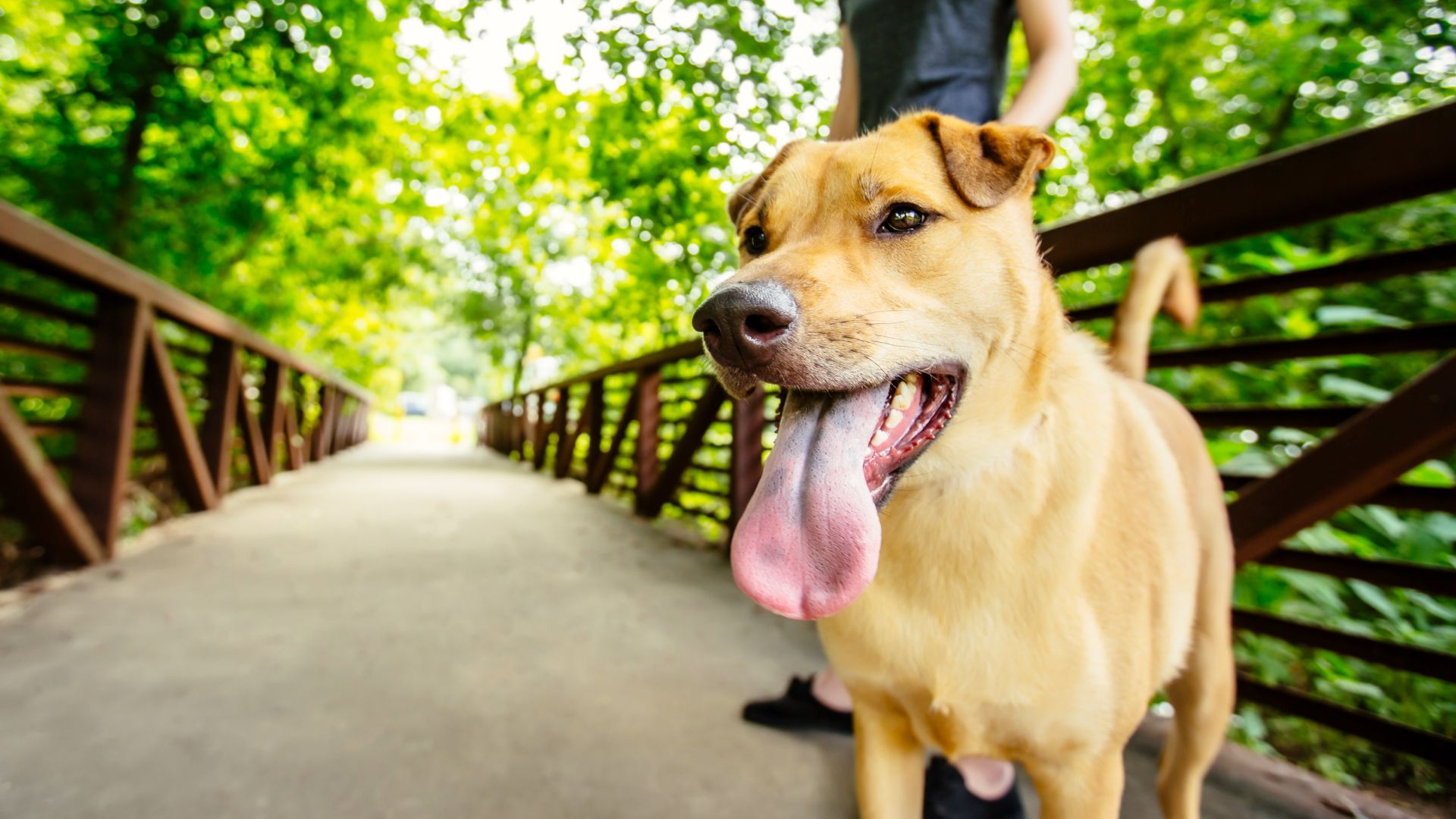
1. To cool down
One of the main reasons dogs pant, is to help themselves cool down. Some of the best dog breeds for warm climates may pant more frequently to help them stay cool. Vet, Dr. Rebecca MacMillan says, "Panting draws air into the dog's mouth across the wet tongue and mucous membranes, causing water to evaporate. Much like when we sweat, this evaporation acts to reduce core body temperature and is therefore beneficial in allowing dogs to regulate themselves."
2. When experiencing emotions
If you and your pup are having a play session with some of the best durable dog toys you may notice your dog panting. This is likely due to excitement. But that's not the only emotion that can cause panting.
Dogs can also pant due to stress or fear. In this case, you may see panting accompanied by tense body language, increased vocalization, or restlessness.
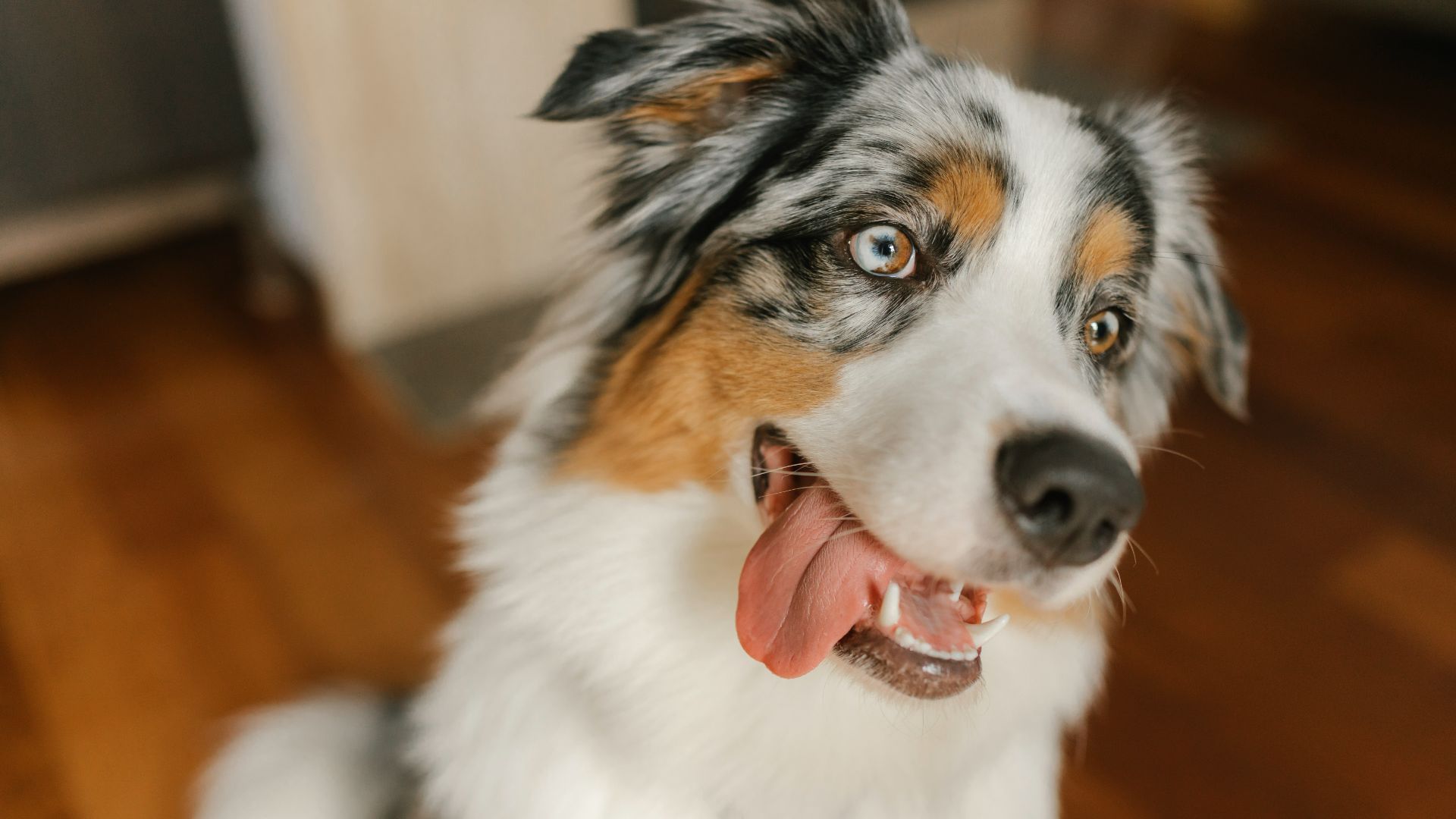
3. Medical issues or medications
If you're still wondering why do dogs pant, another culprit could be medical issues or certain medications your pup may be on.
"Certain medical complaints will cause dogs to pant too, such as respiratory issues, pain, or endocrine (hormonal) issues like Cushing's disease. Owners often report back to that some medications cause their dog to pant more than usual, including steroids," says Dr. MacMillan.
When should you worry about panting?
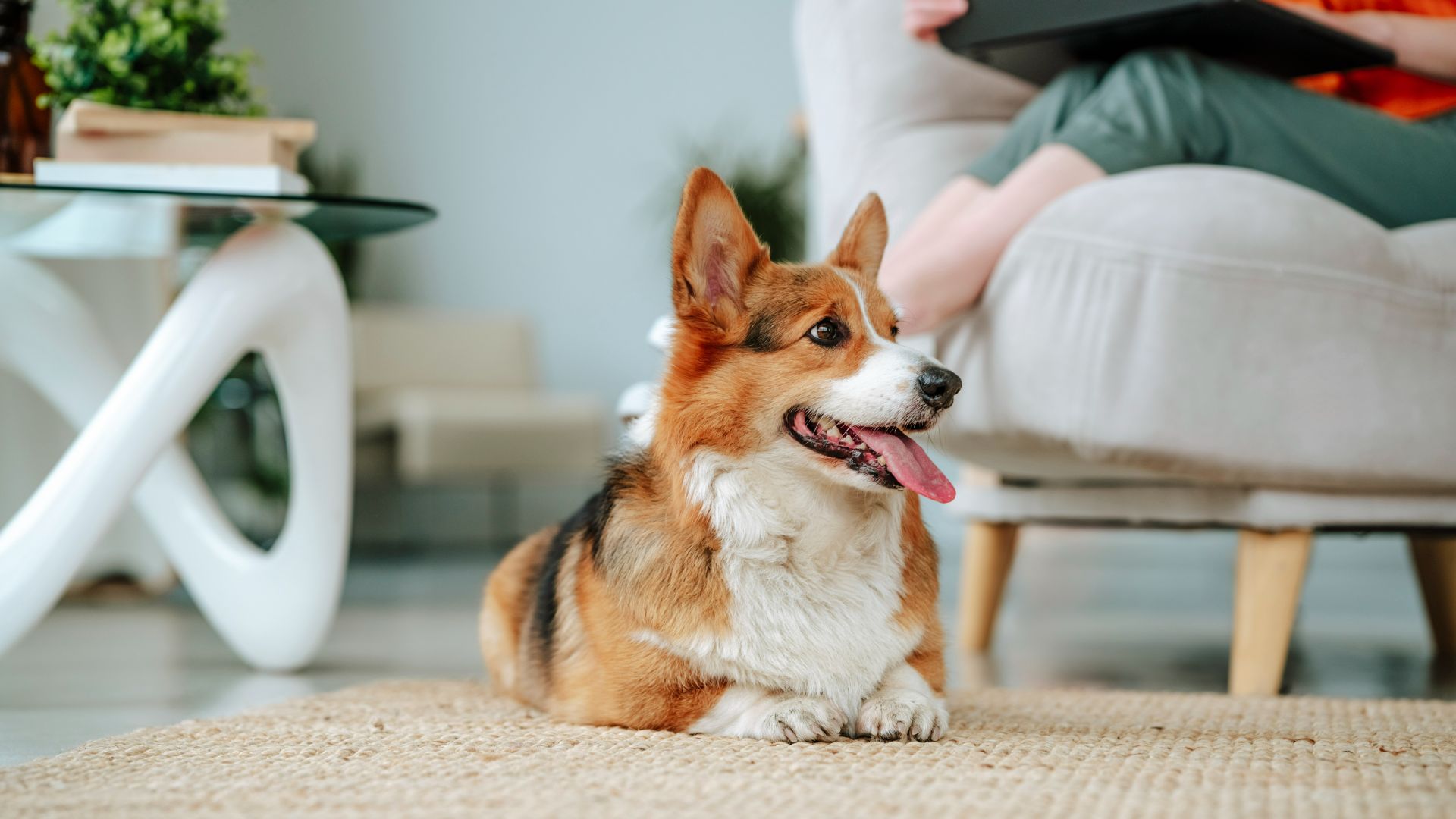
Panting is a normal doggie behavior and generally not anything to worry about. However, there are some instances when it may be worth making an appointment with your vet.
For example, Dr. Rebecca MacMillan notes that it would be abnormal to see excessive panting at night when your dog should be sleeping. She goes on to say, "Additionally, if your dog is showing signs of distress, difficulty breathing, coughing, or collapsing while panting this could indicate a serious underlying health problem such as heatstroke, cardiac disease, or a breathing abnormality."
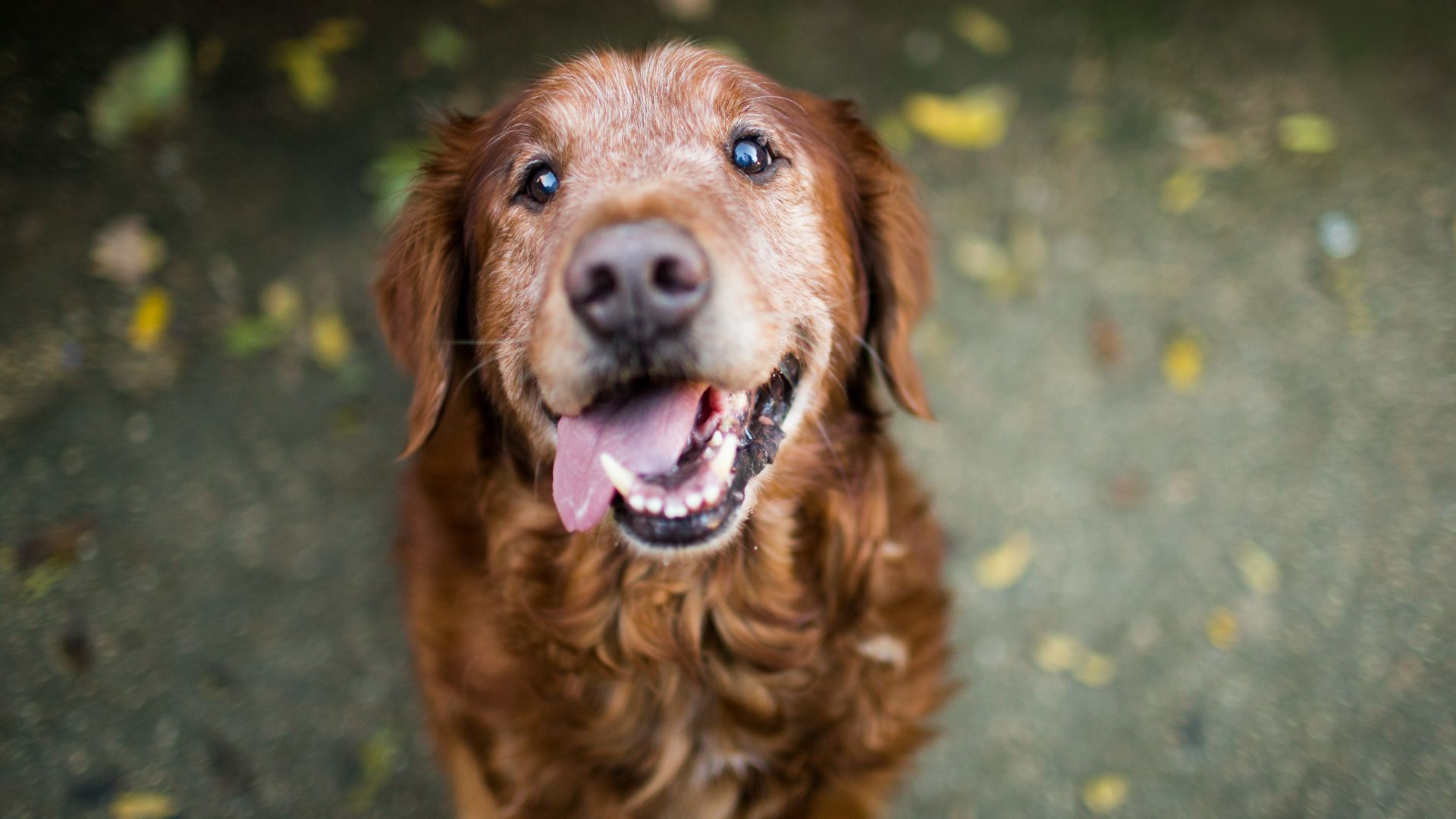
Often confused with panting is, Tachypnoea. This is a faster-than-normal respiratory rate of breathing, you may also notice your dog is putting in more effort to breathe normally. "Your dog's mouth probably won't be as wide open as it normally is when he pants. This is often more noticeable when your pet is resting and their breathing should be relaxed," adds Dr. MacMillan.
Tachypnoea and extreme panting should not ignored, it is important to make an appointment with your vet immediately if you notice either of these.
If you enjoyed this feature be sure to check out, Why do dogs shake their toys and Why do dogs lick their toys?







